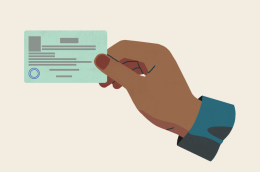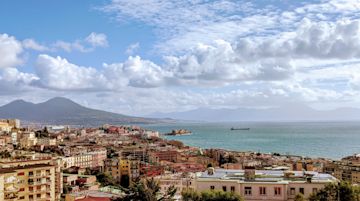
The NIE in Spain: Your questions, answered
For expats in Spain, it’s essential to know what the NIE is. Our guide will answer your questions about the NIE and explain how to get one.
6 min read
Your NIE is an essential document for your day-to-day life in Spain, from opening a bank account to accessing social benefits. Wondering how to get one once you move to Spain? No problem, we’ll clear things up for you. Keep reading!Like it or not, the first thing to welcome you to the country of Spain is always bureaucracy. And there’s one procedure that’s essential for anyone who wants to stay and live in Spain: the famous NIE.In this article, we’ll help you understand what the NIE is in Spain, how you can get one as easily as possible, the different types of NIE available and, above all, what you need it for (which is pretty much everything).NIE stands for Número de Identidad de Extranjero (Foreigner Identity Number). It’s an ID document assigned to every foreign resident of Spain and is equivalent to the DNI (Documento nacional de identidad) that Spaniards have. The document is used by every Spanish public institution to identify any foreign person living in the country.Your NIE has a permanent number that will be yours for life—the only way of changing it would be to become a Spanish national. So, it’s a unique, personal, and non-transferrable number. But what kind of procedures do you need the NIE for?As you can already tell, getting an NIE is one of the most essential bureaucratic procedures you’ll face in Spain. But what other documents do you need to get one? Here’s what you need for the application:Depending on where you are, the procedure is managed in one of two ways:Your NIE is generally issued on the same day that you submit your application. The part that can take a bit longer is actually getting the appointment. To give you a rough idea, these are our estimates:The NIE itself doesn’t have to be renewed. What does need to be renewed is your TIE (tarjeta de identidad de extranjero, or foreigner ID card). You can do this in the same place where you got the card—as long as you make an appointment in advance, of course!Although it’s rare, it can happen that your NIE gets lost or stolen. If it does happen, you’ll have to request a duplicate NIE. First, you have to report the loss or theft to your municipal police. Then, once you have the official report, request an appointment at the police station and present the documentation (passport, EX-17 application form, three passport photos, and payment of fee) and request the duplicate.There are two different types of NIE depending on the applicant and their nationality:Everything we’ve explained so far relates to the normal procedure for getting any type of NIE in Spain. However, to get a temporary NIE, there are some specific features and conditions to take into account:These two things often get confused—and those similar acronyms don’t make it easy—but they’re really not the same thing. The TIE (foreigner ID card) is the physical document that contains the NIE, while the NIE is simply the ID number. For foreigners in Spain, the TIE is the direct equivalent to the DNI and contains a photo of the holder, the type of residence permit, and their personal details.If you already have your NIE, you can open your N26 account in minutes, without even leaving your house. What’s more, opening a bank account with us is free. Plus, it comes with your own virtual Mastercard you can easily add to Google Pay or Apple Pay to start making payments right away and with no hidden fees! And to give you more control of your finances, the premium N26 Smart bank account also comes with 10 Spaces sub-accounts to help you organize your money and progress towards your personal savings goals. So go grab your smartphone and download the N26 app today!
At N26, we’ve taken the red tape out of opening a bank account in Spain. Open an online account in minutes—all you’ll need is your smartphone, a valid address in Spain, and a valid photo ID. You’ll get an official Spanish IBAN, so you can pay and be paid like a local. Plus, there are no hidden fees and you’ll always have access to English-speaking customer service, so you can focus on settling in to your new home.
How do you get an NIE in Spain and what is it used for?
- Opening a bank account.
- Signing a contract.
- Registering with the Spanish Social Security and get a social security number.
- De-registering from the Spanish Social Security.
- Buying a car.
- Buying or selling a house.
- Paying your taxes.
- Starting a business.
- Applying for a residence permit.
Documents required to get an NIE in Spain
- A completed EX-15 form.
- A completed 790 form for NIE, including payment for this form.
- Your passport and photocopies of all its pages.
- A certificate of residence (you can get this from the council of the municipality where you live).
- Proof of your entry into the country, if you aren’t an EU citizen—this can be a stamp in your passport or a document showing your plane ticket.
- A document justifying why you need the NIE.
- Two passport photos.
- Your fingerprints.
Where do you submit the documentation for your NIE?
- If you’re outside Spain, you’ll have to start the application at the Spanish consulate or embassy in your country.
- If you’re in Spain already, you’ll have to present your documentation at an office of the Directorate-General of the Police (Dirección General de Policía).
How long does it take to get your NIE?
- For non-EU citizens, the procedure usually takes around a week.
- For EU citizens, the time depends on demand and the availability at the time you request an appointment.
How do you renew your NIE?
What should you do if your NIE is lost or stolen?
Types of NIE in Spain
- NIE for residents: Intended for EU citizens who want to live in Spain.
- NIE for non-residents: Intended for non-EU citizens or EU citizens who want to live in Spain for less than 3 months and need authorization.
What is a temporary NIE?
- A temporary NIE only lasts three months.
- It’s usually issued to people who come to Spain to buy property.
- To change from a temporary NIE to a permanent one, you have to request another appointment and provide additional information and fingerprints.
Differences between the NIE and the TIE
Open an N26 account with your NIE
Get a local IBAN with N26
At N26, we’ve taken the red tape out of opening a bank account in Spain. Open an online account in minutes—all you’ll need is your smartphone, a valid address in Spain, and a valid photo ID. You’ll get an official Spanish IBAN, so you can pay and be paid like a local. Plus, there are no hidden fees and you’ll always have access to English-speaking customer service, so you can focus on settling in to your new home.
Find similar stories
BY N26Love your bank
Related Post
These might also interest youEXPATSMoving to Naples: a comprehensive guide for aspiring expatsWant to move to Naples? Here, get our tips on housing, job opportunities, and how to adapt to the local culture.
15 min read
EXPATSMoving to Turin: a comprehensive guide for aspiring expatsWant to move to Turin? Here, get our tips on housing, job opportunities, and how to adapt to the local culture.
14 min read
EXPATSMoving to Milan: a comprehensive guide for aspiring expatsWant to move to Milan? Here, get our tips on housing, job opportunities, and how to adapt to the local culture.
14 min read



